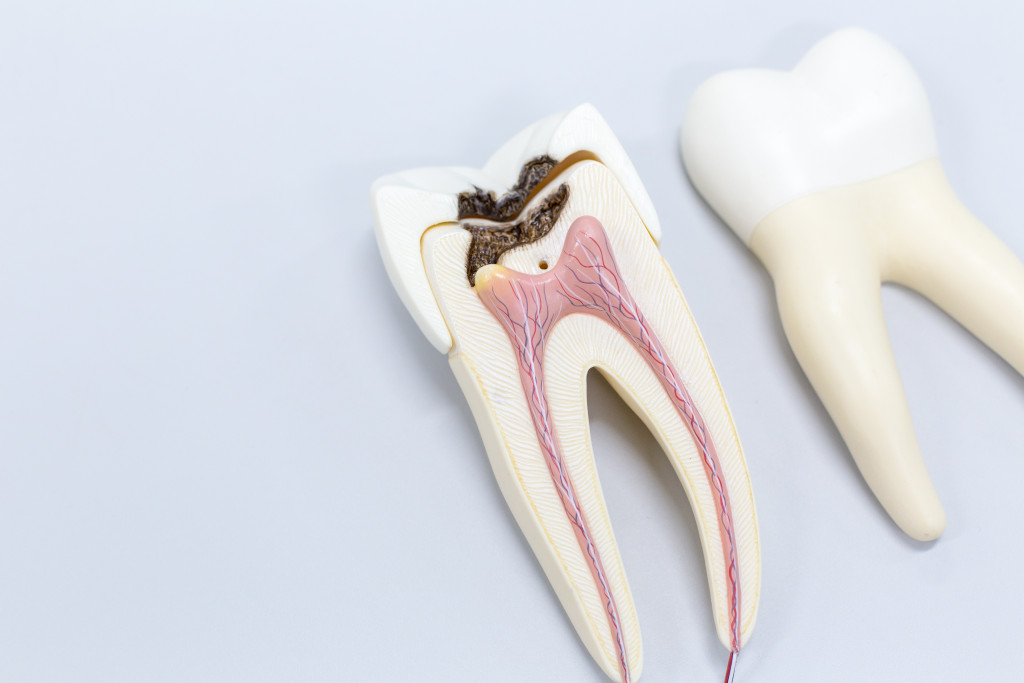During pregnancy, you might have noticed how your shoes don’t fit anymore or how you urinate more frequently than before. It’s natural to experience these bodily changes. The changes we see right away are the ones that prompt us to do a quick Google search or question the doctor about them at our next appointment. But what about the “invisible” changes?
Bone health during pregnancy doesn’t get enough attention. According to the National Institute of Arthritis and Musculoskeletal and Skin Diseases, the more times a woman goes through pregnancy, the lower the risk of fractures due to greater bone density. That’s great news for any expecting mothers.
Additionally, a study showed that the number of times a woman has been pregnant does not worsen curve progression in scoliosis. If you have a history of scoliosis and seek non-surgical treatment plans, be sure to contact your doctor on the actions to take.
Some changes in your body can leave you vulnerable to a host of things. The health of your bones, specifically your teeth, may fall victim to these. Today, we’re going to be focusing on your oral health. Here are some oral health issues to watch out for.
Tooth Decay
The change in eating habits increases the likelihood of developing dental cavities. With all the food cravings, it’s bound to take a toll on the health of your teeth. You never used to take late-night sweet snacks or prefer your drinks to be very cold. Cutting back on these cravings won’t necessarily help, especially when you’re eating for two. In fact, your cravings could be telling you what your body is looking for.
Gum Disease
About 40% of pregnancies develop gum problems. Because of the hormonal imbalance brought by pregnancy (i.e., higher levels of estrogen and progesterone), pregnant women are susceptible to gingivitis, particularly during their second to the eighth month of pregnancy.
The excessive presence of bacteria in the mouth can enter the bloodstream through the gums, eventually reaching the uterus. This can cause the production of prostaglandins, a chemical that is believed to induce premature labor.
Another way the bacteria can be passed on is through vertical transmission. Meaning, the mother can pass it to her child through breast milk, the placenta, or even through direct contact right after birth. Dental cavities carry bacteria too, which may be transferred to your child before or after delivery.
Symptoms of gingivitis usually go away on their own after birth. But if symptoms persist, leaving it untreated can cause reduced bone support for the teeth. This could make them loose or, worse, lead to extraction.
Plaque Build-up

Plaque build-up can happen to anyone. But because of the changes in eating habits, there’d be more build-up than usual. This is nothing regular brushing, flossing, and mouthwash can’t handle. Just makes sure not to skip it.
Taking Care of Your Oral Health
Other than brushing and flossing daily, other ways help improve and maintain your oral health during and after pregnancy.
-
See Your Dentist Regularly
It’s recommended to get a regular check-up and dental cleaning every 6 months. A check-up spots any cavities or gum problems on their onset. It’s better to catch it early on before it causes any pain or discomfort. Besides, your dentist will surely be happy to see you.
-
Eat Good Food
Other than the food that you’ve been craving, consider adding these to your diet. First off, we have green tea. Green tea can reduce inflammation in the gums. It prevents the growth of disease-causing bacteria in your mouth. It’s great for a cool night too.
If you’re worried about your teeth’s enamel, have some cheese, nuts, and chicken. They supply the phosphorus and calcium needed to strengthen teeth. Sadly, your favorite cheese-flavored chips won’t cut it. But you can make a filling and healthy meal out of the three.
Lastly, we’ve got fruits and vegetables. These saliva-inducing foods, like apples and cucumbers, to name a couple, help by washing away food particles that may cause cavities and neutralize the acidic content you get from other foods. Refreshing and anti-cavity!
With all the body changes, pregnancy pains, and symptoms, on top of that, preparing for the baby, there’s already so much to keep up with. But understanding the consequences and effects of certain health decisions helps you to navigate through them. These decisions and lifestyle changes don’t just affect your health, but your child’s as well. By looking after yourself, you are extending that care to your child. As a mother, all you ever want is what’s best for them.